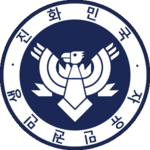Renism: Difference between revisions
(Created page with "{{Template:Renism}} '''Renism''', often referred to as '''Triminism''' (Zhenian: 삼민주의), is a Zhenian ideology pursuing social order and...") |
No edit summary |
||
| Line 7: | Line 7: | ||
==Definitions== | ==Definitions== | ||
==Ideological goals== | |||
===Democracy=== | ===Democracy=== | ||
The first ideological goal, democracy ([[Zhenian language|Zhenian]]: 민권/民權), concerns the core principle that the centralized power upholding social stability and order must come directly from the people themselves, and that the people are free to form polities for the purpose of upholding stability and authority. Democracy, in this context, spans over the processes in which the people express their political wishes and reflect them into the political system, as well as the administrative process in which the political system functions and the maintenance of order. The first process of political expression and reflection is primarily achieved by the existence of elections for key positions of power, such as the [[Chancellor of the Republic of Zhenia|Chancellor]] and members of the [[Parliament of the Republic of Zhenia|Parliament]]. The second process of administration sees the functioning of democracy work under a government of multiple branches that, in principle, is equal in power, keeping each other in check, while the third process of maintaining order incorporates democratic ideals in that the law and the system can be adjusted at the will of the people. | |||
===Welfare of the People=== | ===Welfare of the People=== | ||
The second of three ideological goals, the welfare of the people ([[Zhenian language|Zhenian]]: 민생/民生), concerns the duty of the state, as well as said centralized power, to look after its people to maintain social stability and order, primarily to prevent the collapse of order and to enhance the livelihood of the people upon which centralized power is justified. Initially concerning the {{wp|means of production}}, particularly land ownership, [[Amasar Ren]] agreed that the means of production must be adjusted in favor of the people, in order to resolve then-present inequalities. In addition to the adjustment of land ownership, [[Amasar Ren]] further promoted the necessity of {{wp|economic liberalism}} to further promote the welfare of the people, believing that the allocation of resources and goods under a free economic system, would cater to the demands of all members of society and thereby maximize their overall welfare. However, it has been argued that in no contexts did Amasar Ren argue for a {{wp|laissez-faire}} system in which the state steps behind; in tandem with the 'stability of the people', Ren emphasized the role of the state and its centralized power to keep the free economic system in check, compensating for the inherent limitations of the market. | |||
The welfare of the people in practice has surfaced at the form of [[Land reforms in Zhenia|land reforms]] carried out during the [[First Zhenian Republic]] from 1909 to 1914, primarily carried out under the principle of 'land for the tiller' to allocate means of production to the producers themselves. The Republic of Zhenia has also maintained a more economically liberal approach towards the market to promote economic activity, while it has stepped in to prevent monopolies and impose cumulative tax rates to account for the inequalities caused both by the inherent limitations of the market and inherent inequalities present in society as a whole. | |||
===Stability of the People=== | ===Stability of the People=== | ||
The last ideological goal, the stability of the people ([[Zhenian language|Zhenian]]: 민정/民政), concerns the functions of the state and centralized power directly in relation to the people upon which it is justified. | |||
==Concept== | ==Concept== | ||
| Line 19: | Line 29: | ||
===Economic liberalism=== | ===Economic liberalism=== | ||
==Schools of Thought== | |||
==Criticism== | |||
==Legacy== | |||
==See Also== | ==See Also== | ||
Latest revision as of 09:55, 8 April 2020
| Renism |
|---|
 |
Renism, often referred to as Triminism (Zhenian: 삼민주의), is a Zhenian ideology pursuing social order and stability based on legalist, nationalist and democratic political ideals. Built around three primary ideological goals - democracy (Zhenian: 민권), the welfare of the people (Zhenian: 민생) and the stability of the people (Zhenian: 민정) - it emphasizes the role of a centralized authority to uphold and maintain its ideological goals, as well as to establish social order upon which its three ideological goals can be laid. Its name comes from Amasar Ren, the first Chancellor of Zhenia and one of the Founding Fathers of Zhenia.
While there are various schools of thought following it, all schools of Renism are built under the stipulation regarding the necessity of social authority and order due to the inherently selfish nature of humans, as well as a overall centralized system of power to uphold order and social stability. Under such fundamentals, most schools allow political participation by all individuals to formulate said social authority and centralized power, as well as actively embrace economic liberalism as a method to maximize the welfare of the people, although the latter has been under attack in some schools of thought amid increased interaction with other ideologies.
History
Definitions
Ideological goals
Democracy
The first ideological goal, democracy (Zhenian: 민권/民權), concerns the core principle that the centralized power upholding social stability and order must come directly from the people themselves, and that the people are free to form polities for the purpose of upholding stability and authority. Democracy, in this context, spans over the processes in which the people express their political wishes and reflect them into the political system, as well as the administrative process in which the political system functions and the maintenance of order. The first process of political expression and reflection is primarily achieved by the existence of elections for key positions of power, such as the Chancellor and members of the Parliament. The second process of administration sees the functioning of democracy work under a government of multiple branches that, in principle, is equal in power, keeping each other in check, while the third process of maintaining order incorporates democratic ideals in that the law and the system can be adjusted at the will of the people.
Welfare of the People
The second of three ideological goals, the welfare of the people (Zhenian: 민생/民生), concerns the duty of the state, as well as said centralized power, to look after its people to maintain social stability and order, primarily to prevent the collapse of order and to enhance the livelihood of the people upon which centralized power is justified. Initially concerning the means of production, particularly land ownership, Amasar Ren agreed that the means of production must be adjusted in favor of the people, in order to resolve then-present inequalities. In addition to the adjustment of land ownership, Amasar Ren further promoted the necessity of economic liberalism to further promote the welfare of the people, believing that the allocation of resources and goods under a free economic system, would cater to the demands of all members of society and thereby maximize their overall welfare. However, it has been argued that in no contexts did Amasar Ren argue for a laissez-faire system in which the state steps behind; in tandem with the 'stability of the people', Ren emphasized the role of the state and its centralized power to keep the free economic system in check, compensating for the inherent limitations of the market.
The welfare of the people in practice has surfaced at the form of land reforms carried out during the First Zhenian Republic from 1909 to 1914, primarily carried out under the principle of 'land for the tiller' to allocate means of production to the producers themselves. The Republic of Zhenia has also maintained a more economically liberal approach towards the market to promote economic activity, while it has stepped in to prevent monopolies and impose cumulative tax rates to account for the inequalities caused both by the inherent limitations of the market and inherent inequalities present in society as a whole.
Stability of the People
The last ideological goal, the stability of the people (Zhenian: 민정/民政), concerns the functions of the state and centralized power directly in relation to the people upon which it is justified.
